Almond
How to submit an article:
- Registered users can submit any published journal article that has a unique DOI (Digital Object Identifier) name or link to Research Hub.
- For example, you can paste the full DOI link:
https://doi.org/10.1109/5.771073or just the DOI name:10.1109/5.771073into the field above and click submit. - The person who is first to submit a valid article to Research Hub will forever be credited for it, and every article submission earns you +6 Research Points.
Related Topics
Published research studies are articles that present the findings of original research that has undergone a peer-review process and has been made publicly available in scholarly journals, books or other media.
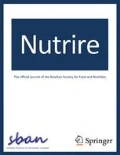
Nutritional and health-beneficial values of almond nuts consumption
2023 Nov 02 Nutrire Ouzir M
Review Article Cardiovascular Disease Cognitive Function Almond Type 2 Diabetes ObesityAlmond consumption has beneficial impacts on cardiovascular diseases, diabetes, obesity, and it can improve cognitive performance and protect against skin aging.

A systematic review and meta-analysis of almond effect on C-reactive protein and interleukin-6 in adults
2023 Mar Complementary Therapies in Medicine Hariri M, Amirkalali B, Baradaran HR, Gholami A
Systematic Review Meta-Analysis CRP Almond IL-6Almond consumption can significantly reduce the serum concentration of the inflammatory mediator, Interleukin-6, in adults but no significant effect is found on C-reactive protein.
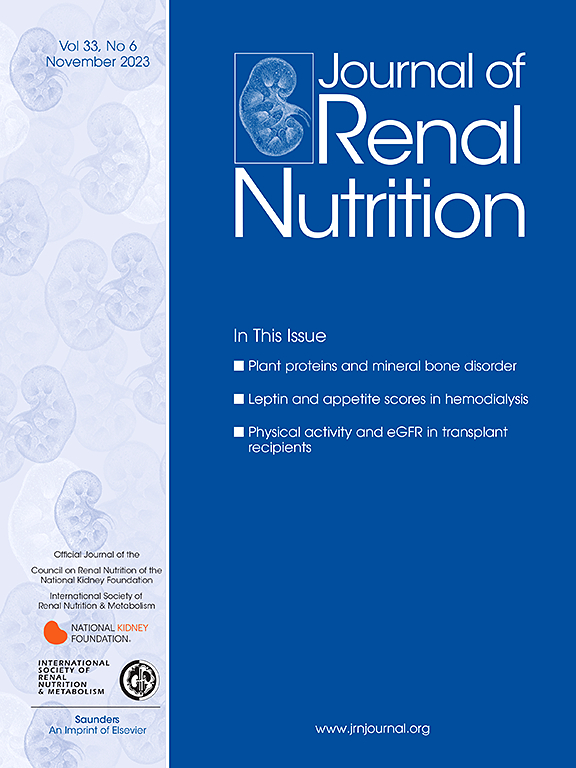
Plant-Based Milk Alternatives and Risk Factors for Kidney Stones and Chronic Kidney Disease
2022 May Journal of Renal Nutrition Borin JF, Knight J, Holmes RP, Joshi S, Goldfarb DS, Loeb S
The study found that oat, macadamia, rice, and soy milk compare favorably with dairy milk in terms of kidney stone risk factors, while almond and cashew milk have more potential stone risk factors. Coconut milk may be a favorable substitute for patients with chronic kidney disease based on low potassium, sodium, and oxalate.
Experimental Study Coconut Milk Kidney Stone Chronic Kidney Disease Plant Milk Cashew Milk Nuts Almond Milk
The Effects of Almonds on Gut Microbiota, Glycometabolism, and Inflammatory Markers in Patients with Type 2 Diabetes: A Systematic Review and Meta-Analysis of Randomised Controlled Trials
2021 Sep 26 Nutrients Ojo O, Wang XH, Ojo OO, Adegboye ARA
Systematic Review Meta-Analysis Type 2 Diabetes Gut Microbiota Obesity HbA1C AlmondAlmond-based diets may be effective in promoting short-chain fatty acid-producing bacteria and lowering glycated haemoglobin and body mass index in patients with type 2 diabetes compared with control.

A Comprehensive Review of Almond Clinical Trials on Weight Measures, Metabolic Health Biomarkers and Outcomes, and the Gut Microbiota
2021 Jun 08 Nutrients Dreher ML
Review Article Obesity Almond Gut MicrobiotaRecent systematic reviews and meta-analyses of nut RCTs showed that almonds were the only nut that had a small but significant decrease in both mean body mass and fat mass, compared to control diets.
Almonds can support colonic microbiota health by promoting microflora richness and diversity, increasing the ratio of symbiotic to pathogenic microflora, and concentrations of health-promoting colonic bioactives.
Research insights are moderated by the Research Hub team and offer an at-a-glance overview of interesting research findings.

2023 Nutrire
Almond consumption has beneficial impacts on cardiovascular diseases, diabetes, obesity, and it can improve cognitive performance and protect against skin aging.
Review Article Cardiovascular Disease Cognitive Function Obesity Type 2 Diabetes
Nutritional and health-beneficial values of almond nuts consumption
Ouzir M

2023 Complementary Therapies in Medicine
Almond consumption can significantly reduce the serum concentration of the inflammatory mediator, Interleukin-6, in adults but no significant effect is found on C-reactive protein.
Systematic Review CRP IL-6
A systematic review and meta-analysis of almond effect on C-reactive protein and interleukin-6 in adults
Hariri M, Amirkalali B, Baradaran HR, Gholami A

2021 Nutrients
Almond-based diets may be effective in promoting short-chain fatty acid-producing bacteria and lowering glycated haemoglobin and body mass index in patients with type 2 diabetes compared with control.
Systematic Review Gut Microbiota HbA1C Obesity Type 2 Diabetes
The Effects of Almonds on Gut Microbiota, Glycometabolism, and Inflammatory Markers in Patients with Type 2 Diabetes: A Systematic Review and Meta-Analysis of Randomised Controlled Trials
Ojo O, Wang XH, Ojo OO, Adegboye ARA

2021 Nutrients
Almonds can support colonic microbiota health by promoting microflora richness and diversity, increasing the ratio of symbiotic to pathogenic microflora, and concentrations of health-promoting colonic bioactives.
Review Article Gut Microbiota Obesity
A Comprehensive Review of Almond Clinical Trials on Weight Measures, Metabolic Health Biomarkers and Outcomes, and the Gut Microbiota
Dreher ML

2021 Nutrients
Recent systematic reviews and meta-analyses of nut RCTs showed that almonds were the only nut that had a small but significant decrease in both mean body mass and fat mass, compared to control diets.
Review Article Gut Microbiota Obesity
A Comprehensive Review of Almond Clinical Trials on Weight Measures, Metabolic Health Biomarkers and Outcomes, and the Gut Microbiota
Dreher ML
Review Articles
Review articles summarise and critically evaluate the current state of research on a specific topic or field by synthesising multiple primary research studies.

Nutritional and health-beneficial values of almond nuts consumption
2023 Nov 02 Nutrire Ouzir M
Review Article Cardiovascular Disease Cognitive Function Almond Type 2 Diabetes ObesityAlmond consumption has beneficial impacts on cardiovascular diseases, diabetes, obesity, and it can improve cognitive performance and protect against skin aging.

A systematic review and meta-analysis of almond effect on C-reactive protein and interleukin-6 in adults
2023 Mar Complementary Therapies in Medicine Hariri M, Amirkalali B, Baradaran HR, Gholami A
Systematic Review Meta-Analysis CRP Almond IL-6Almond consumption can significantly reduce the serum concentration of the inflammatory mediator, Interleukin-6, in adults but no significant effect is found on C-reactive protein.

The Effects of Almonds on Gut Microbiota, Glycometabolism, and Inflammatory Markers in Patients with Type 2 Diabetes: A Systematic Review and Meta-Analysis of Randomised Controlled Trials
2021 Sep 26 Nutrients Ojo O, Wang XH, Ojo OO, Adegboye ARA
Systematic Review Meta-Analysis Type 2 Diabetes Gut Microbiota Obesity HbA1C AlmondAlmond-based diets may be effective in promoting short-chain fatty acid-producing bacteria and lowering glycated haemoglobin and body mass index in patients with type 2 diabetes compared with control.

A Comprehensive Review of Almond Clinical Trials on Weight Measures, Metabolic Health Biomarkers and Outcomes, and the Gut Microbiota
2021 Jun 08 Nutrients Dreher ML
Review Article Obesity Almond Gut MicrobiotaRecent systematic reviews and meta-analyses of nut RCTs showed that almonds were the only nut that had a small but significant decrease in both mean body mass and fat mass, compared to control diets.
Almonds can support colonic microbiota health by promoting microflora richness and diversity, increasing the ratio of symbiotic to pathogenic microflora, and concentrations of health-promoting colonic bioactives.
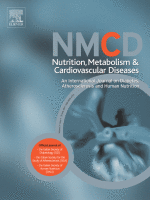
The effects of foods on LDL cholesterol levels: A systematic review of the accumulated evidence from systematic reviews and meta-analyses of randomized controlled trials
2021 May Nutrition, Metabolism and Cardiovascular Diseases Schoeneck M, Iggman D
Systematic Review Turmeric Walnut Avocado Tumeric Almond Green Tea Tomato FlaxseedConsumption of certain foods like rapeseed/canola oil, avocados, and turmeric can lead to moderate to large reductions in LDL cholesterol levels.
Clinical Trials
Clinical trials are research studies that involve people and are conducted to evaluate the safety and efficacy of new treatments or interventions, such as drugs, medical devices, or behavioural therapies.
Study Protocols
Published study protocols are detailed plans that outline the objectives, methodology, statistical analyses, and organisation of a research study that have been made publicly available for others to review and use as a reference.
Presentation Slides

Review Article
Almond consumption has beneficial impacts on cardiovascular diseases, diabetes, obesity, and it can improve cognitive performance and protect against skin aging.
Ouzir M

Systematic Review
Almond consumption can significantly reduce the serum concentration of the inflammatory mediator, Interleukin-6, in adults but no significant effect is found on C-reactive protein.
Hariri M, Amirkalali B, Baradaran HR, Gholami A

Systematic Review
Almond-based diets may be effective in promoting short-chain fatty acid-producing bacteria and lowering glycated haemoglobin and body mass index in patients with type 2 diabetes compared with control.
Ojo O, Wang XH, Ojo OO, Adegboye ARA

Review Article
Almonds can support colonic microbiota health by promoting microflora richness and diversity, increasing the ratio of symbiotic to pathogenic microflora, and concentrations of health-promoting colonic bioactives.
Dreher ML

Review Article
Recent systematic reviews and meta-analyses of nut RCTs showed that almonds were the only nut that had a small but significant decrease in both mean body mass and fat mass, compared to control diets.
Dreher ML

Systematic Review
Consumption of certain foods like rapeseed/canola oil, avocados, and turmeric can lead to moderate to large reductions in LDL cholesterol levels.
Schoeneck M, Iggman D

Systematic Review
Almond intake significantly changed the concentrations of triglycerides, total cholesterol and low-density lipoproteins
Asbaghi O, Moodi V, Hadi A, Eslampour E, Shirinbakhshmasoleh M, Ghaedi E, Miraghajani M
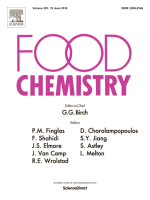
Experimental Study
Soaking nuts doesn't increase the bioavailability of their nutrients, instead, it reduces the mineral concentration, particularly in chopped nuts.
Kumari S, Gray AR, Webster K, Bailey K, Reid M, Kelvin KAH, Tey SL, Chisholm A, Brown RC

Systematic Review
Almond intake significantly decreased diastolic blood pressure, and inconsistently, almonds decreased systolic blood pressure.
Eslampour E, Asbaghi O, Hadi A, Abedi S, Ghaedi E, Lazaridi AV, Miraghajani M

Systematic Review
Almond consumption was found to significantly reduce systolic blood pressure.
Li Z, Bhagavathula AS, Batavia M, Clark C, Abdulazeem HM, Rahmani J, Yin F

Systematic Review
Almond intake significantly reduces body weight and fat mass in adults, yet it does not impact body mass index, waist circumference, or fat-free mass.
Eslampour E, Moodi V, Asbaghi O, Ghaedi E, Shirinbakhshmasoleh M, Hadi A, Miraghajani M
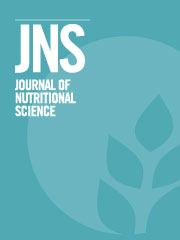
Systematic Review
Almond consumption effectively reduces blood lipid levels, thus reducing risk of heart disease.
Musa-Veloso K, Paulionis L, Poon T, Lee HY
Executive Summary
Write an executive summary in the form of a blog article on the topic of "Research into Chinese medicine treatment for Almond" summarising the research below and using language that can be easily understood by patients and avoiding medical jargon using a professional and caring tone of voice.
Write an executive summary in the form of a blog article on the topic of "Researched Chinese medicine treatments for Almond" summarising the research below in an objective and easy to understand way, and using language that can be easily understood by patients. Group the article into Chinese medicine treatments first, followed by nutrition and other treatments. Avoid using medical jargon and use a professional and caring tone of voice.
Write me a concise but easy to understand executive summary on the topic of "Chinese medicine treatments for Almond" based on the following research that I will give you. Your summary should be 2 paragraphs long in Australian English spelling and include references to the studies.
A Review Article published in 2023 in the journal Nutrire found that Almond consumption has beneficial impacts on cardiovascular diseases, diabetes, obesity, and it can improve cognitive performance and protect against skin aging. The methodology employed in this study included analyzing a range of clinical studies centered on the health benefits linked to the consumption of sweet almond nuts. Various health outcomes correlated with almond consumption were investigated such as body weight, food intake, blood pressure, blood lipid composition, glucose and insulin levels, oxidative status, liver enzymes, and some inflammation biomarkers. The discussion of the results reveals that almond consumption has been found to create favorable alteration in aspects like body weight, food intake, blood pressure, blood lipid composition, glucose, and insulin levels, as well as oxidative status, liver enzymes, and inflammation biomarkers. These findings highlight the beneficial impact of almonds on multiple health issues including cardiovascular diseases, diabetes, and obesity. Additionally, the consumption of almonds has been associated with improved cognitive performance and protection against skin photodamage and aging.
A Systematic Review published in 2023 in the journal Complementary Therapies in Medicine found that Almond consumption can significantly reduce the serum concentration of the inflammatory mediator, Interleukin-6, in adults but no significant effect is found on C-reactive protein. The methodology of this study involved running an electronic search for English-language studies across several databases such as Web of Science, PubMed, SCOPUS, ClinicalTrials.gov, and Cochrane library without any time restrictions. The effect sizes on serum concentration of C-reactive protein (CRP) and Interleukin-6 (IL-6) were calculated based on the mean changes of both intervention and control groups. Assessment of the overall effects and their heterogeneity was done using the DerSimonian and Laird random-effects model. To examine the statistical heterogeneity, Cochran's Q test and I-squared statistic were utilized. With respect to the results, among the eleven studies involved, it was observed that almond consumption did not significantly affect serum CRP level. However, a significant decrease in serum IL-6 level was reported with almond consumption. Thus, reflecting the beneficial effects of almonds with regard to reducing the serum concentration of IL-6. The results derived for serum CRP were not substantial enough to be considered significant.
A Systematic Review published in 2021 in the journal Nutrients found that Almond-based diets may be effective in promoting short-chain fatty acid-producing bacteria and lowering glycated haemoglobin and body mass index in patients with type 2 diabetes compared with control. The research was a systematic review and meta-analysis, conducted using the preferred reporting items for systematic review and meta-analysis methodology. Diverse databases, including the Health Sciences Research Databases via EBSCOhost, Google Scholar, EMBASE, and other article's reference lists, were thoroughly searched following the population, intervention, control, outcome, and study framework. The searches encompassed all relevant studies available from the inception of these databases until August 1, 2021. Nine randomised studies were analysed, eight of which were used for the meta-analysis. Results revealed that diets rich in almonds foster the growth of gut bacteria that produce short-chain fatty acids. Additionally, the analysis demonstrated that such diets effectively reduce both glycated haemoglobin levels and body mass index in patients with type 2 diabetes. However, the effects of almonds were not significant concerning fasting blood glucose, 2-hour postprandial blood glucose, various inflammatory markers, and certain other indicators of diabetes. The biological mechanisms attributed to reductions in glycated haemoglobin and body mass index are thought to be related to the nutritional composition of almonds, namely their high fibre content and low glycaemic index.
A Review Article published in 2021 in the journal Nutrients found that Almonds can support colonic microbiota health by promoting microflora richness and diversity, increasing the ratio of symbiotic to pathogenic microflora, and concentrations of health-promoting colonic bioactives. This narrative review of 64 RCTs and 14 meta-analyses and/or systematic reviews presents a more in-depth analysis of almond clinical trials and their effects on weight measures, metabolic health biomarkers and outcomes, and colonic microbiota health than typically described in systematic reviews and/or meta-analyses. Almonds have one of the largest portfolios of RCTs on weight measures, metabolic health, and colonic microbiota of any food. These RCTs consistently support an important role for almonds in reducing body and fat mass, other weight measures, and promoting metabolic health as a premier snack for precision nutrition diets
A Review Article published in 2021 in the journal Nutrients found that Recent systematic reviews and meta-analyses of nut RCTs showed that almonds were the only nut that had a small but significant decrease in both mean body mass and fat mass, compared to control diets. The biological mechanisms for almond weight control include enhanced displacement of other foods, decreased macronutrient bioavailability for a lower net metabolizable energy (ME), upregulation of acute signals for reduced hunger, and elevated satiety and increased resting energy expenditure.
A Systematic Review published in 2021 in the journal Nutrition, Metabolism and Cardiovascular Diseases found that Consumption of certain foods like rapeseed/canola oil, avocados, and turmeric can lead to moderate to large reductions in LDL cholesterol levels. The research was carried out by conducting a systematic evaluation of existing guidelines, systematic reviews, and Randomised Control Trials (RCTs); we have only referred to the latter for studies on coffee intake. This was done on databases such as PubMed, Cochrane Database of Systematic Reviews, and Cochrane Central Register of Controlled Trials, alongside a search on the Trip database for guidelines. The time frame for the study was from its inception up until June 2019 and October 2019 respectively. Studies were included if they were at least 13 days in duration and were in English. Using the Grading of Recommendations Assessment, Development, and Evaluation (GRADE) method, 37 guidelines, 108 systematic reviews, and 20 RCTs were evaluated to analyze the strength of evidence in the context of food impacts on LDL cholesterol levels. The results of the research reveal that foods high in unsaturated and low in saturated and trans fatty acids such as rapeseed or canola oil, those with added plant sterols/stanols, and those high in soluble fibre like oats, barley and psyllium cause moderate reductions in LDL cholesterol. A moderate to a large increase was observed with unfiltered coffee though. Soy protein, tomatoes, flaxseeds, and almonds cause small reductions. Meanwhile, foods like avocados and turmeric cause moderate to large reductions with a moderate level of evidence supporting this observation. Other foods like pulses, hazelnuts, walnuts, high-fiber/wholegrain foods, green tea result in small to moderate reductions, and sugar causes a small increase. Several foods identified were either neutral or had low or very low evidence regarding their effects on LDL cholesterol levels.
A Systematic Review published in 2021 in the journal Food & Function found that Almond intake significantly changed the concentrations of triglycerides, total cholesterol and low-density lipoproteins To estimate the overall effect of almond intake, we employed the random-effect model. In total, 27 studies with 36 effect sizes were included in our analysis (1154 cases and 904 control subjects). The meta-analysis revealed that almond intake significantly changed the concentrations of triglycerides, total cholesterol, and low-density lipoproteins; however it did not have a significant effect on high-density lipoprotein levels. Meta-regression analysis indicated a linear relationship between the dose of almond and change in TG. This meta-analysis concludes that almond intake can significantly reduce lipid parameters.
A Experimental Study published in 2020 in the journal Food Chemistry found that Soaking nuts doesn't increase the bioavailability of their nutrients, instead, it reduces the mineral concentration, particularly in chopped nuts. The study examined the effects of different soaking regimes on the phytate and mineral concentrations in whole and chopped almonds, hazelnuts, peanuts, and walnuts. Four treatments were employed: raw, soaking for 12 hours in salt solution, soaking for 4 hours in salt solution, and soaking for 12 hours in water. To analyze phytate concentrations, high-performance liquid chromatography was used and the mineral concentrations were evaluated by inductively coupled plasma mass spectrometry. In the evaluation of the results, it was observed that the differences in phytate concentrations between treated and untreated nuts were minimal, ranging from -12% to +10%. On the other hand, the soaking process resulted in diminished mineral concentrations, notably for chopped nuts. Furthermore, there were no improvements noted in the phytate:mineral molar ratios as a result of the soaking technique. Therefore, this study effectively disproves the notion that 'activating' nuts yields a greater nutrient bioavailability.
A Systematic Review published in 2020 in the journal Complementary Therapies in Medicine found that Almond intake significantly decreased diastolic blood pressure, and inconsistently, almonds decreased systolic blood pressure. The evidence from this meta-analysis suggest that almonds may have beneficial effects on the BP. Based on the current scientific knowledge, it could be encouraged to include them, as part of a healthy diet in order to reduce the risk of hypertension.66 It should be noted that results cannot be generalized to those with other health problems, such as liver disease and cancer that were not included in this analysis. We found that almonds might have a considerable favorite effect in BP and especially in DBP, and it could be encouraged as part of a healthy diet; however due to the high calorie content, the intake should be part of healthy diet.
A Systematic Review published in 2020 in the journal Journal of King Saud University - Science found that Almond consumption was found to significantly reduce systolic blood pressure. A systematic and dose-response meta-analysis review study was carried out. The researchers thoroughly searched through PubMed/MEDLINE, Web of Science, and Scopus, with no restrictions on time or language, up until July 2019. The goal was to identify randomized controlled trials which investigated the effects of almond consumption on systolic and diastolic blood pressure. A total of fifteen studies, with 21 arms and involving 853 participants, were selected and their findings analyzed according to the PRISMA guidelines. Upon analysis, it was observed that the consumption of almonds displayed a significant reduction effect on systolic blood pressure. However, no such significant effect was found on diastolic blood pressure. The variation in results for diastolic blood pressure was noticed to be linked to the dose of almonds consumed, a finding made through a meta-regression analysis carried out during the study.
A Systematic Review published in 2020 in the journal Food & Function found that Almond intake significantly reduces body weight and fat mass in adults, yet it does not impact body mass index, waist circumference, or fat-free mass. The methodology used in this study started with a comprehensive search of online databases including PubMed, Scopus, ISI Web of Science, Cochrane Library, and Google Scholar until January 2020. The goal was to identify relevant randomized controlled trials for inclusion, which led to the discovery of 28 trials among 2983 reports, that were deemed suitable for analysis. The data were reported as weighted mean differences and standard deviations to signify the impact of almond consumption on different bodily measures including body weight, body mass index, waist circumference, fat mass, and fat-free mass. As for the results, pooling of data was done utilizing a random-effects model, the outcome of which indicated a significant reduction in body weight and fat mass following almond intake. However, no meaningful change was found in measures of body mass index, waist circumference, or fat-free mass as a result of almond consumption. Interestingly, such intake showed a significant influence on weight and fat mass reduction, with no observable effect on the other parameters examined.
A Systematic Review published in 2016 in the journal Journal of Nutritional Science found that Almond consumption effectively reduces blood lipid levels, thus reducing risk of heart disease. The researchers carried out a systematic review and meta-analysis drawing on data from controlled randomised trials. Their search of the scientific literature led them to a total of eighteen relevant publications and twenty-seven datasets, which offered a comparison between almond consumption and a control group. They then unified the studies by pooling the mean differences in the effects on each blood lipid parameter using a random-effects model. The analysis found that consuming almonds had a marked beneficial effect on levels of total cholesterol, LDL-cholesterol and TAG (triacylglycerol). However, it did not significantly affect HDL-cholesterol levels. This supports data from previous observational and large-scale interventional studies that showed nut consumption reduces the risk of heart disease. This goes to show that including nuts in a balanced diet is advisable for maintaining healthy blood lipid levels and preventing heart disease.
Moderation Tools
Topic
Sign In
Users not signed in are limited to viewing the 5 most recent items of content.